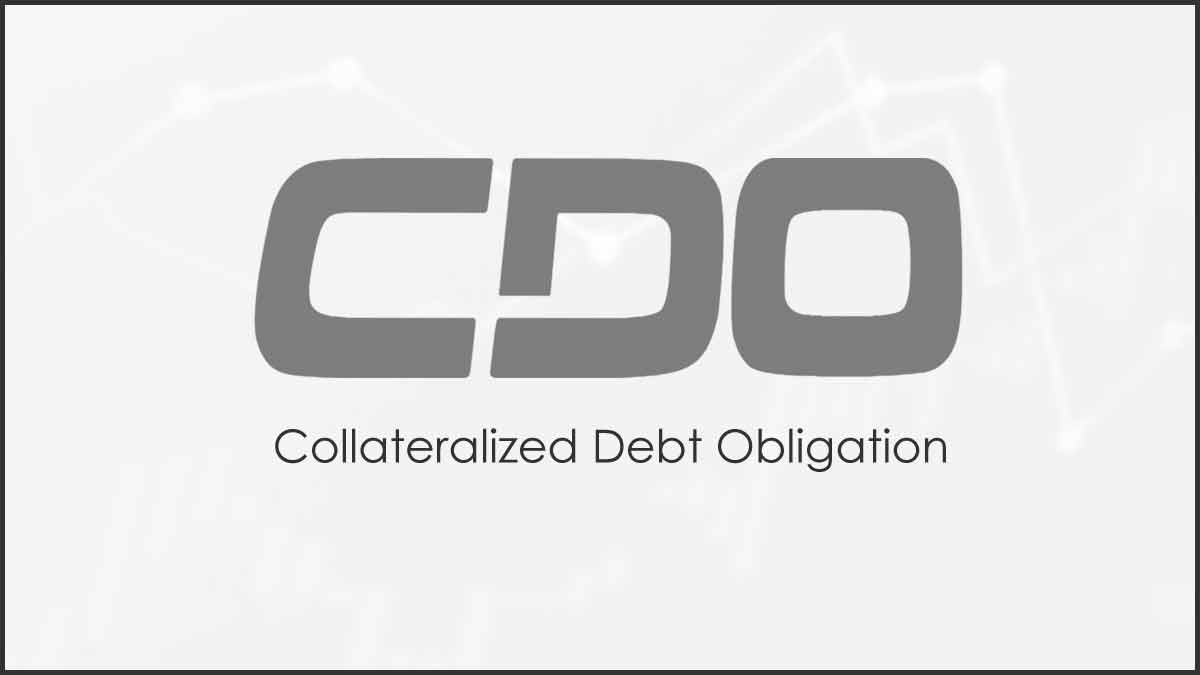CDO stands for Collateralized Debt Obligation. This is an investment opportunity type where the assets and finances backed by the underlying asset.
In simple terms, CDO full form owns a set of assets procures a set of investors to finance in form of debt. The investors risk their finances solely depending on the assets fixed. It is said to bring the revenue or term through the prescribed period of time to complete the finance repayment.
One of the reasons why CDOs are effective because their loan defaults are the assets that they are based on that imply if the CDO fail to provide the investors with their finance in the guaranteed amount of time. They will be able to use the assets as loan default to redeem their set finances as per market standards.

CDO can either asset or a bond that collects money from its instruments of assets and bonds circulates as securities.
The composition of CDO made in such a way that divided into tranches,. The small tranches are the ones which affected the least by the CDO investment failure. The senior tranches are the ones which highly affected by the losses incurred where CDO fails to repay the debt. It is either by investments or collecting the cash required.
CDO Types
There are different types of Collateralize debt obligations based on industry and financing options which we will further discuss below.
Mortgage Based Collateralized Debt Obligation
In this CDO, it consists of numerous mortgage bonds. These are directly link to mortgage of property in question and these act as the assets for financing and investment. This is in turn the mortgage lending rate helps to earn debt money paid to financial institutions or investors. Since these have proper and constant yield results they considered as one of the safest ways of CDO.
Cash Based Collateralized Debt Obligation
In this kind of CDO, the assets are the money that either focused by banks or financial institutions in the form of financial bonds, loans and more that pertain to yielding results month on month for a collective period of time in years.
Though the use of Bond CDOs is common, this may considered not a safe option as the assets are in the liquid form that could swayed by the economy at any given point of time.
If you are looking forward to either being a part of the CDO investments or putting your assets through bonds or mortgage then you should first learn about the advantages of CDOs that would help you make your investment.
CDO Advantages
- For financial institutions, any CDO as part of their investment strategy allow them to show lower risk. This is by putting low risk by means of investing on the underlying assets such as bonds and mortgage.
- Banks are able to reserve the amount of finances along with assets shown on balance sheet as part of requirement
- Financial institutions can easily make use of their assets which are not in liquid state. It is to make them return for financial investment
- Whereas for individual citizens CDOs are not something. They can invest in as these are highly staked investments which may transact through fund managers of banks or any other financial institutions.
For more info, please check the page.
How does CDO Works?
CDO also known as Collateralized Debt Obligations work in a manner similar to Equity and Funds, whereas CDO as investments which have underlying assets.
What is CDO called now?
CDO called as Collateralized Debt Obligations. The financial institution seeks liquid assets in form of CDO which have underlying assets such as bonds and mortgage bonds.
What is a CDO example?
An example of CDO would be mortgage bonds. This may issued by the banks and other fund managers seeking investments on mortgage bonds.